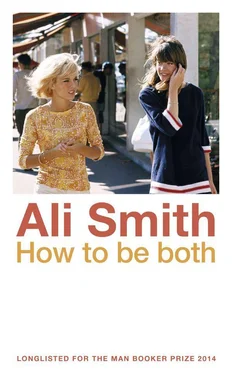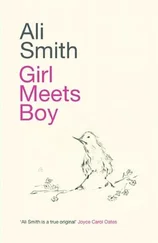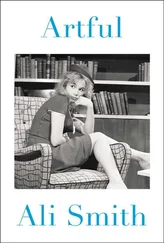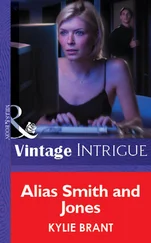They will call their presentation Empathy and Sympathy Take a Trip.
H is admiring the spread of the damp. George is now hiding it with pictures of the kinds of things her father would never suspect there’d be damp behind. There are some pictures of kittens and a couple of the bands people at school right now are listening to, about which George doesn’t give a toss and which she doesn’t mind being ruined by what’s under them.
Who’s she? H says looking across the room at the picture on the far wall.
An Italian film actress, George says. My mother bought it for me.
Is she good? H says.
I don’t know, George says. I’ve never seen anything she’s in.
H looks at the picture of the French girl singers and at the arrangement of photographs above the pillows on the bed of George’s mother as a woman, a girl and a child and even a very small black and white baby. She sits on George’s bed and looks at them.
Tell me about her, she says.
You tell me something first, George says. Then I will.
What? H says. What kind of thing?
Anything, George says. Just something you remember. Something that came into your head tonight at some point.
When? H says.
Whenever, George says. When we looked at the pictures. Whatever.
Oh, okay, H says. Well. That thing about jackets and rawness.
She tells George about the festival she was working at last summer, she was selling and tearing tickets for As You Like It at St John’s. She was doing a double shift and for the evening showing the audience was unexpectedly huge, there were nearly three hundred people — about seventy was usually more like it.
So I was ripping tickets like mad, she says, and doing my eleven and fifteen times tables, fifteen was full price and eleven was concession and we started with almost no change, two five-pound notes, one single pound coin and a handful of pennies, which meant that for a bit I could only really sell tickets to people who had the right money. And it was a really cold evening so the people queuing were cold as well as furious, I know exactly how cold it was because I had no jacket.
Raw, George says.
Yeah, but wait, H says. After the tickets I had to serve two hundred and seventy five people polystyrene cups of mulled wine from the urn and they all wanted it because it was so cold, and there was only me, and the urn would only work if you tipped it, which was quite hard because it was heavy and really hard to hold a cup to without it just emptying out all over the cup and my hand. And I’d seen As You Like It one and a half times that day already, I’d seen the last half in the morning and the whole run-through in the afternoon and wanted to go home but I couldn’t because my next job was to hold the torch after the second half to show people where to walk in the dark and how to get to the exit. So I spent a lot of the second half trying to keep warm next to the urn, actually with my arm round the urn a lot of it, and trying to read though it was nearly dark and I wasn’t allowed to use the torch because it would distract from the performers.
The girl playing Rosalind had this habit of getting into her Ganymede character by walking about behind the audience pretending to be a girl then pretending to be a boy to get her stance right, and she was in a very bad mood that night not just because she was also having to slip off in the breaks and cover for someone ill by playing Ophelia at Trinity but because at her afternoon performance of the Hamlet someone had exploded a bottle of cherryade just as she started doing her rosemary for remembrance speech and she’d forgotten her lines. Anyway she was walking up and down and up and down in the half-dark pretending to be one and then the other and from where I was sitting I could sort of see her, I was half watching her and half trying to read, and then something else caught my eye, it was a small fast thing, at first I thought maybe she’d forgotten which play she was in, had dipped into being Ophelia and had got down on all fours, which I knew she actually did do in her mad scene, but the thing moving was too fast and too small for that and anyway I could hear her, she was out front, had been on for some time, was doing the line I really like about how you can’t shut doors on wit, and whatever the four-legged thing was darted behind the audience then back again and I saw it was a fox, it had something in its mouth, it had lifted a coat or jacket from the back of the audience and run off with it. And five minutes later it did it again, darted in and this time it came away with what looked like a handbag. And then when the play was over I stood on the road and held up my torch to show people where to go and the three or four people whose things’d been taken wandered about the gardens looking for them and then left the gardens not knowing. I knew. They didn’t. But I didn’t want to tell them. It’d be like betraying the fox. And then on my way home I realized I’d stopped thinking about the cold and that this had happened when I saw the thing happen with the fox.
Jackets in this year’s disease came of rawness, George says. I suppose it means skin.
How? H says.
Where it says jackets, George says. It could be something about the raw way the disease that year made the skin go. And talking of coming and going. And rawness.
She asks H when her family plans to leave.
First week of March, H says.
New school, George says.
Fifth in four years, H says. You might say I’m used to change. It’s why I’m so well balanced and socially adept. Your turn.
What? To be socially adept? George says.
To tell me something you remembered, H says. When we looked at the pictures.
It is last May. It is Italy. They are in the hire car on the way back to the airport.
Skiffa what was it? George says.
Noia, her mother says.
Henry starts singing in the back of the car. Skipannoy, Skipannoy. Ship ahoy, Ship ahoy.
Really annoying, Henry, George says.
Her mother starts singing the words of a Pet Shop Boys song.
They were never being boring , she sings. They dressed up in thoughts, and thoughts make amends .
It’s not thoughts, George says. It’s fought.
No it isn’t, George’s mother says.
It is, George says. The line goes: we dressed up and fought, then thought, make amends .
No, her mother says. Because they always write such intelligent words. Imagine. Dressing up in thoughts because thoughts make amends. Thoughts make amends. It ought to be a figure of speech. If I had a shield, that’s what I’d want it to say in Latin on it, that’d be my motto. And I’ve always thought it a beautiful philosophical explanation and understanding of precisely why they were never being boring.
Your version doesn’t make sense, George says. You can’t dress up in thoughts. It’s fought . It’s obvious. You’re mishearing it.
I’ll prove it to you, her mother says. Next chance we get we’ll play it and listen.
We could look up the lyrics online right now, George says.
Those online sites are full of mistakes, her mother says. We’ll use our human ears and listen together to the original when we get home.
I bet you fifty pounds I’m right, George says.
You’re on, her mother says. Prepare yourself for a substantial loss.
Francesco de what? the woman behind the information desk had said.
Cossa, George said.
Cotta? the woman said.
Cossa, and it’s del, George said. With an l.
Della Francesca, the other woman, coming over, said.
No, George said. Francesco. Then del. Then Cossa. Francesco del Cossa.
The second woman shook her head. The first one shook her head.
Читать дальше












